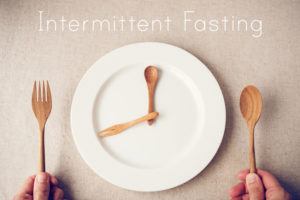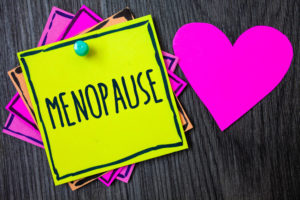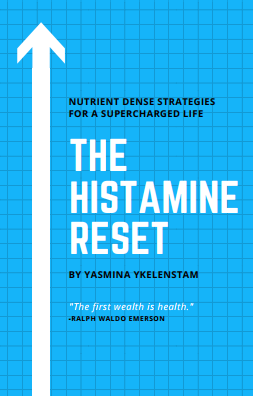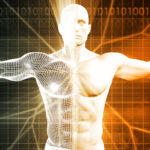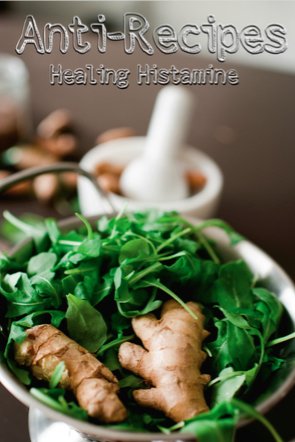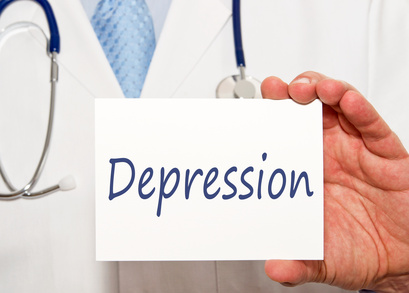
While you could say it’s pretty normal to be down in the dumps over having been sick for most of your life, I’ve often found it interesting that an impressive number of us with histamine intolerance, mast cell activation disorders and mastocytosis appear to suffer from crushing depression.
So convinced was I of the link, that I never really bothered to look it up for myself, until it dropped into my lap, as it did a few months ago when I shared the news that researchers in Finland had successfully treated schizophrenia with antihistamines, rather than anti-psychotics (read my post here). This wasn’t news to me given that I had previously experienced almost ALL the schizophrenia symptoms during high histamine episodes/attacks. Yes, even hallucinations.
I know, what more could a gal ask for?
An increase in the number of emails I get about a possible depression link finally lit a fire under my butt and I instinctively knew that NIH funded mast cell/histamine researcher Dr Theoharides [1] was the man to approach on this. His groundbreaking research has linked mast cells/histamine to: multiple sclerosis, autism, cancer, parkinson’s, alzheimers, depression, schizophrenia and more [2].
(Disclosure – I am a huge fan of his work).
He’s a busy guy, but sent over a bucket load of research (most of it too complicated for the layperson – myself included) and this line: Mast cells are definitely associated with depression due to release of cytokines that affect brain function.”
His research clearly shows why those of us with mast cell activation/histamine intolerance disorders are more likely to suffer from depression and other psych conditions – the kind that are likely to get us a psych (mis)diagnosis, rather than a mast cell histamine one. As I did, starting with simple anxiety diagnosis for the shaking I was experiencing, progressing to depression after I was prescribed downers (xanax), then into bipolar as the SSRI drove me into complete manic episodes and then down, down, down the rabbit hole for 8 years before I finally re-claimed my sanity through diet.
According to a growing body of research, by Dr Theoharides and others, shows that pro-inflammatory brain cytokines are implicated in depression [3]. In English: mast cells cause inflammation in the brain, which causes depression. For all of you histamine intolerance folks: there’s histamine in the body already, stored in mast cells, until we need it for healing and other important body functions, and there’s the histamine we get from foods. More on that later…
Dr Theoharides notes that the role of inflammation in neuropsychiatric diseases was long suspected, but new findings report decreased mitochondrial function in as many as 60% of autism patients, “a neuropsychiatric developmental disorder showing many similarities with schizophrenia…[4]”
In short, neuroinflammation, involving mast cells, can manifest in many different ways. In some people it can cause disorders involving a loss of speech (autism) or psych disorders (schizophrenia, bipolar, major depression), or demyelination disorders like Multiple Sclerosis. Please understand, I’m not saying that autism is a psychiatric disorder.

Dr Theoharides chart
Dr T concludes, in an editorial for the Journal for Clinical Psychopharmacology, that: “there is no doubt that available evidence indicates brain mitochondrial dysfunction and heightened immune response in neuropsychiatric diseases. However, it is still hard to understand how in certain cases these changes affect mostly behaviour, whereas in others they lead to loss of speech (autism) or demyelination and mostly neurological problems (MS).[5]”
In my interview with her, pioneering mast cell doctor Marianna Castells shared her discovery (along with her teacher) of mixed organic brain syndrome:
“The cognitive changes consisted of diminished attention and memory, and the affective changes of anger, irritability, and, to a lesser extent, depression. These manifestations fluctuated with the level of disease activity, and appeared in some cases to respond to histamine antagonists and disodium cromoglycate, medications used to control the excessive mast cell activity. It is important for psychiatrists to be aware that mental status changes can represent psychiatric manifestations of mastocytosis, a readily treatable medical disorder. [6]”
The psychological manifestations of mast cell/histamine disorder can be so extreme, as to be heartbreaking. In our interview Dr Castells relayed the story of a woman committed to an institution by her family. She exhibited bipolar type tendencies and clouded thinking. By chance the woman fell over (not from a great height) and broke her collarbone. Someone was smart enough to wonder why such a young woman would break bones so easily (the majority of mast cell peeps have bone density issues due to disrupted calcium absorption), and so Castells was called in to consult. A quick round of testing revealed that her tryptase was elevated, in addition to her prostaglandins, which according to Castells are one of the reasons for brain fog, or “mixed brain syndrome” as she and her predecessor dubbed the condition 20 years ago. After a short treatment with mast cell meds and antihistamines, the woman was “cured” of her psych issues and released to her family.
I can’t imagine that was a very happy home coming.
All I can say is that I can’t stop thanking my lucky stars that I found my depression cure through diet. Not a low histamine diet, but rather a high nutrient diet rich in anti-inflammatory and antihistamine foods. The kind of diet that helps prevent cancer, alzheimer’s and certainly in my case, lifted the life long depression that inspired doctors to prescribe meds that flushed the best years of my life down the toilet, the depression that caused me, in my darkest days, to harm my body in an effort to feel anything through the numbness, the impenetrable haze of ambivalence towards my precarious non-existence.

Please don’t wait almost a decade, as I did, to examine your mast cells, histamine levels, and really, truly lift a microscope to your diet.
Please don’t forget antihistamine, pain killing foods can still hurt us, so please always check with your doctor before adding new foods to your diet.
————-REFERENCES————-
[1] www.mastcellmaster.com
[2] www.mastcellmaster.com
[3 + 4] http://www.mastcellmaster.com/documents/brain-health/J-Clin-Psychopharm-2011-Brain-Inflammation.pdf
[5] http://www.mastcellmaster.com/documents/brain-health/J-Clin-Psychopharm-2011-Brain-Inflammation.pdf
[6] http://www.psychosomaticmedicine.org/content/48/6/437.short



